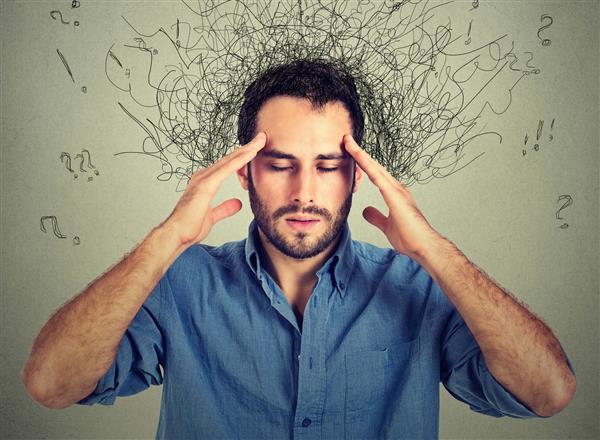
Dizzying Times for a New Generation: When Anxiety, Depression Take Lead
Barkat Health & Pharmaceutical Group: More than ever, words like anxiety and depression echo through our everyday conversations. These aren’t just afflictions of specific individuals or older generations anymore—they now cast their shadow over the youth as well. A generation that is growing up fast, yet finds itself facing a wave of challenges with each passing day.
Rapid social, economic, and technological changes have created a world steeped in uncertainty and unpredictability. Within this shifting landscape, anxiety and depression have emerged as silent adversaries—threatening not only mental well-being but the very quality of life. Have we reached a point where this state has spiraled into a collective crisis? Is today’s generation being consumed by these psychological giants?
Tracing Roots of Anxiety & Depression
Accelerating Social and Economic Pressures
Life in the modern world moves at a relentless pace, accompanied by mounting economic and social pressure. For today’s youth, the future often feels out of reach—vague, uncertain, and unstable. Job insecurity, the struggle for financial stability, and the constant race to succeed have all fed a rising tide of psychological strain. In a world rife with ambiguity, young people feel compelled to push themselves harder and faster—yet that very intensity can lead to exhaustion and inner unrest.
Social Media: A Distorted Mirror
In the digital age, everything moves fast—but is it all real? Young people are now more immersed than ever in a stream of curated perfection: flawless appearances, success stories, and ideal lifestyles. But behind these filtered realities lies a dangerous illusion—one that fosters toxic comparisons and a deepening sense of inadequacy. Instead of being a space for meaningful connection, the online world has morphed into a relentless battleground of status and self-worth.
Identity Crisis & Social Isolation
As young people search for their identity and place in society, many encounter a crisis of self. Social change has made traditional definitions of identity more complex, while relationships have grown increasingly shallow and transactional. Digital interaction often substitutes for authentic human connection, further isolating individuals. This growing social detachment can eventually hollow out one’s sense of purpose—giving way to feelings of emptiness that feed anxiety and depression.
Toll on Individual & Social Life
Mental Strain, Physical Consequences
Anxiety and depression don’t just affect the mind—they take a serious toll on the body. From sleep disorders and digestive issues to chronic headaches and heart problems, the physical symptoms can be just as debilitating. Someone who wakes up each day weighed down by fear and worry gradually loses not only emotional strength, but physical vitality. This psychological pressure damages not only individual productivity, but also weakens the fabric of social interaction.
Social Fallout: From Isolation to Crisis
Many young people struggling with anxiety and depression withdraw from social life. Isolation becomes their default, preventing them from forming meaningful relationships or achieving personal and professional goals. As a result, depression doesn’t just erode individuals—it deprives communities of their collective potential.
Responding to the Mental Health Crisis
Vital Role of Psychological Treatment
Acknowledging that anxiety and depression require care is the first and most crucial step. Psychological counseling and cognitive-behavioral therapy have proven highly effective in treating these conditions. These methods empower individuals to uncover the roots of their distress and develop tools to manage stress and regulate emotions.
Lifestyle Shifts & Stress Management
Practical, accessible strategies can be powerful. Exercise, balanced nutrition, sufficient sleep, and meditation all contribute to reducing stress levels. Techniques such as deep breathing and mindfulness offer clarity and calm—helping individuals face daily challenges with resilience. Even small lifestyle adjustments can yield significant improvements in mental well-being.
Raising Awareness and Changing Culture
Promoting awareness around mental health and encouraging open dialogue is essential. We need a cultural shift—one that starts in schools, communities, and media—to help people understand that mental health struggles are not only normal but also treatable. Reducing stigma and normalizing professional support can create an environment where healing becomes a shared goal.
Final Thoughts
Anxiety and depression are no longer on the margins of modern life—they’ve become central challenges of our time. Their causes are deeply rooted in both global dynamics and personal experiences, but no challenge is beyond reach if we begin by valuing mental health and taking meaningful steps toward prevention and recovery.
In the face of mounting global pressures, today’s generation needs tools that go beyond individual survival—they need pathways toward collective well-being. To build a better world, they must first build resilience from within—and they can only do that through empathy, awareness, and the power of support.
-
Afghanistan’s Ministry of Public Health Delegation Meets Barkat Pharmaceutical Group Executives

-
Voice of Life in World of News — Redefining Health Journalism in the Information Age

-
Senior Health Officials & Barkat GD Visit Sobhan Oncology

-
Barkat Group specialized meeting

-
Safa Appointed as Barekat General Director

-
Barekat Health & Pharmaceutical Group at the 10th Iran Pharma Exhibition

-
Ali Safa visits Sobhan Oncology & Sobhan Darou

-
Pirsalehi & Safa visit Saman Daroo 8 Knowledge-based Company

